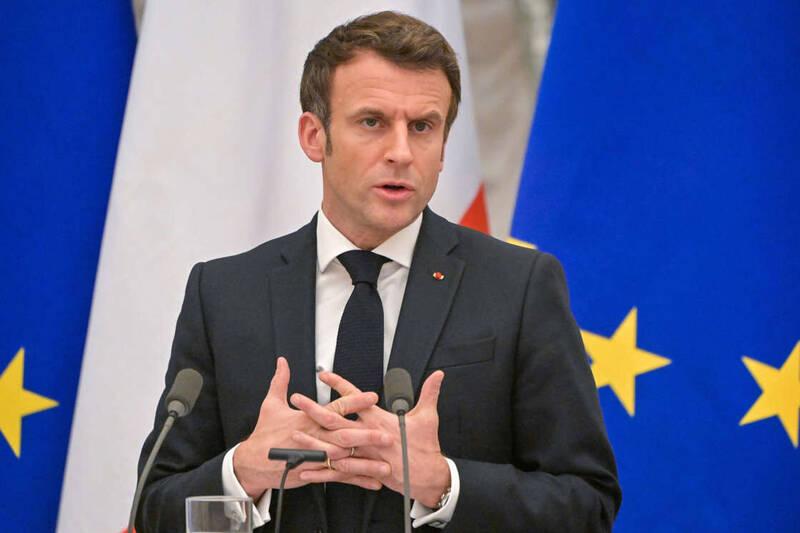In an interview with the French newspaper “Les Echos” and the American publication “Politico” Macron said that Europe must resist the pressure to become a follower of the United States. The worst thing is to think we Europeans should follow the US in this issue (Taiwan) and adapt ourselves to the US rhythm or Chinese overreaction. Therefore, we must de-risk our model without ever being dependent on others.
Background, dimensions of strategic independence plan
Strategic independence is an idea that France first included in 2013 in EU documents, and three years later, in June 2016, it was included in the global strategy of the Union. In his September 2017 lecture at Sorbonne University, Macron elaborated on this concept, referring to the “operational capabilities of European strategic autonomy,” establishing it as a severe discourse in the defense and security issues of the European Union.
This idea has again become one of the debatable topics among the EU countries at the same time as Britain left the European Union in 2020.
France is known as the most significant political power in Europe. This country, in the past year and affected by the new developments due to the war in Ukraine and the tension between China and the United States over Taiwan, is again seeking to revive and strengthen the idea that it was its originator and designer.
Strategic independence, seeking to benefit from the ability of the member states of the Union to formulate priorities, make independent decisions in the field of foreign relations, security, and defense issues, and use practical tools in the field of applying and implementing Union policies in the three areas mentioned above, alone or in partnership with others.
In other words, strategic independence seeks to enhance the position of the European Union and empower it as an independent union in the field of growing geopolitical competition in the world with less and minimal influence from the US.
Obstacles, prospects of realizing strategic independence
Although the French government firmly insists on the independence of the European Union countries from the United States in decision-making regarding regional issues and geopolitical competitions, the realization of this idea faces obstacles and difficulties mainly of a structural, political, and security-military nature.
The profound American influence in the economy, politics, and security arrangements of the European Union, which was formed in the post-World War II period and has continued until now, does not easily allow European countries to advance such a plan. The need that European countries have for the United States in terms of security and military, as well as for NATO, an organization with an American nature and identity, is strategic.
Europe’s economy also relies more on the US than anywhere else. The resources and possibilities that the US has in all fields potentially putting pressure on European countries, is a strategic advantage for the United States. This is while in various European institutions, including the European Parliament and some parliaments of member states, some representatives and figures are staunch defenders of the US policies, which causes the loss of balance in the presentation of views and the formulation and approval of some regulations in favor of Europe.
Therefore, some European officials have a pessimistic view on the issue of strategic independence and evaluate it to the detriment of the European Union in terms of security and politics. In this context, “Norbert Röttgen,” a member of the German parliament and a foreign relations committee member, wrote in a tweet in response to Macron’s words that Macron seeks to create a political disaster for Europe.
Therefore, Europe’s strategic independence from the US cannot be realized shortly and in the medium term, when European countries rely on the US more than ever to ensure and guarantee their security; as this issue is well evident in the Ukraine war and even in the Joint Comprehensive Plan of Action (JCPOA) negotiations.
The fact that the French president refers to strategic independence emphasizes the depth of the European Union’s dependence on the US, which is challenging to eliminate, and its realization will be costly and time-consuming. The US still makes more seductive offers to vulnerable European countries to keep them in the circle of dependent partners.
Consequences
Many European countries seek political, economic, and security independence from the US today. Strategic autonomy, regardless of how and when it will be realized and whether it can be discovered in the way that France is maneuvering it or not, is a severe issue that aims to take the European Union out of the process of following and obeying the strategic policies of the United States.
This concept seeks to realize a union independent from the US in decision-making and action, a partnership that has not been located along the length of the US but is parallel to it. Indeed, realizing such an idea in a situation where the world accepts multiple poles of power will weaken the US in the international system. In addition, the strategic independence of the European Union, in the early stages of its realization, in the security, military and economic dimensions due to the depth of the Union’s dependence on the United States, will increase the vulnerability of European countries, unless such damages and gaps are compensated by other poles of power, including China, and…
Final word
Europe’s deep dependence on the US is the Achilles heel of European countries in the field of independence in decision-making and action, which has also put the political future of the Union in danger. Europe has no other choice but strategic independence. Although the discussion of such an idea has opponents inside Europe, if the European countries do not find a way to be more independent and coherent in foreign and security policy, at best, they will become a neutral union. In the worst case, they will be convicted to fade away and disappear in geopolitics competition.










0 Comments